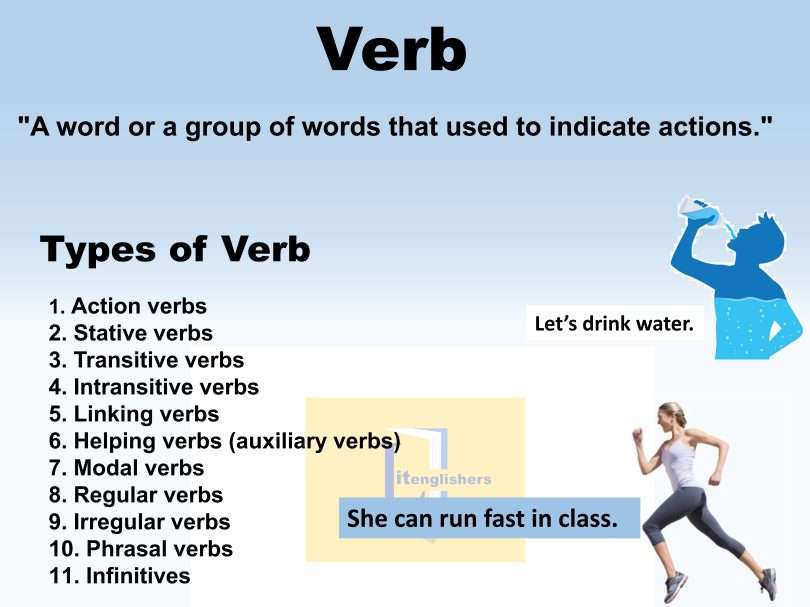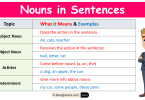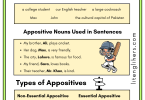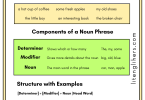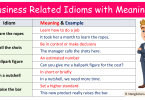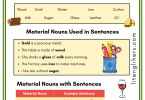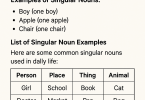Learn about Verb
A lot can happen on an average day, people go to work. Children study at school. Animals hunt for food. Friends are talking to each other. All these sentences express basic ideas about everyday events. However, we can also use sentences to express more complex ideas: citizens can own property. People will follow their dreams to achieve what they want. Our simple and complex sentences have something in common: they all use verbs.
Verbs are very important in grammar and we use many different types of verbs when talking about what things are doing or how things are. Since they do so much for us, it’s only fair that we take the time to learn a little more about verbs and some common types of verbs used in English.
what is Verb?
“A word or a group of words that is used to indicate actions.”
Word stands for doing or being something used to convey or indicates an action and condition. A sentence may either have a main verb, a helping verb, or both.
For Example:
| Action | State of Being |
| She stitched her dress. | She feels tired. |
| ↑ verb |
↑ verb |
Types of verbs
We are going to explore 11 different types of verbs because every type deserves some attention, we won’t be going into too much detail on each type.
- Action verbs
- Stative verbs
- Transitive verbs
- Intransitive verbs
- Linking verbs
- Helping verbs (auxiliary verbs)
- Modal verbs
- Regular verbs
- Irregular verbs
- Phrasal verbs
- Infinitives
1. Action verb
“The verbs that are used to describe an action are known as action verbs”
For Example: like, run, jump, kick, eat, break, cry, smile, think.
- She accepted the flowers.
- He thought about his stupid thinking about that girl.
- Jenny visited his friend for a while and then went hospital.
- The cat ran across the road.
- She left in tension.
- She yelled when she was hit by her sister.
2: Stative verb
“Expressing a state or condition instead of stating an action.”
For Example:
- Adore – I adore childhood mornings.
- Agree – He agrees with her doctor.
- Appear – She appears to be a little strange today.
- Appreciate – I appreciate your hard work.
- Astonish – The magician astonished the judges.
- Be – Who are you supposed to be?
- Belief – Do you believe in life after losing everything?
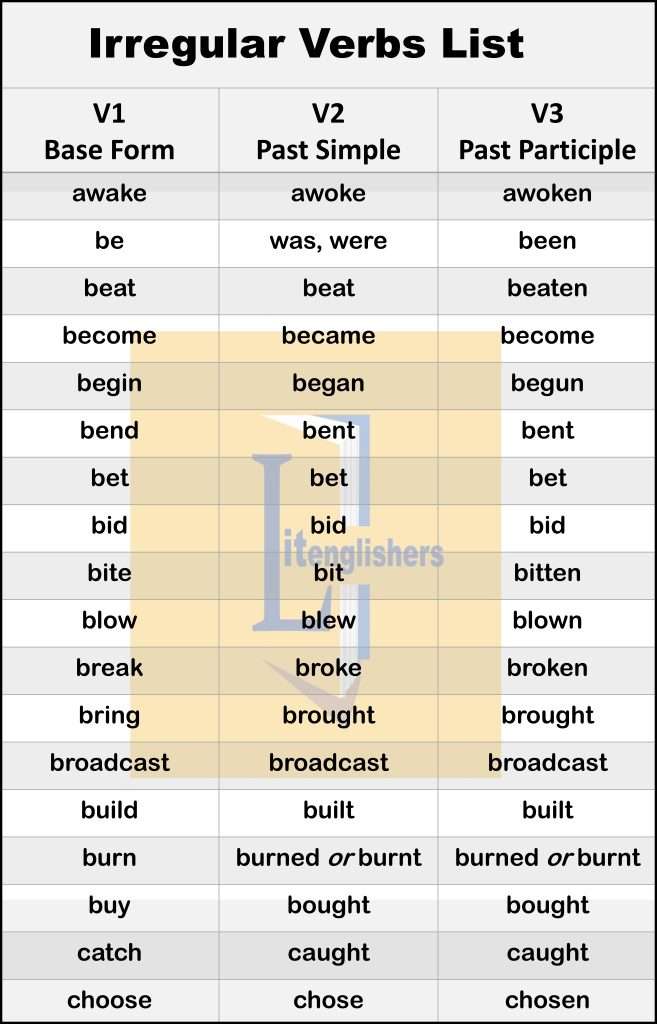 3:Transitive verbs
3:Transitive verbs
“Verbs that always need an object to accomplish a sentence.”
For Example, address, borrow, bring, discuss, raise, offer, pay, write, promise, and have.
- She left the bag on the shelf.
- My Mother took me to the hotel for my birthday.
- Please buy me a Panda!
- Deena hit Joseph when the teacher was in the class.
- My Mother wrote me a letter on my first day of school.
- My rabbit ate carrots off the ground.
- Amina washed the glasses after lunch.
4: Intransitive verbs
” Verbs who do not need an object to make a complete sense of a sentence.”
For Example run, rain, die, sneeze, sit smile.
- The fink sings beautifully.
- The tiger runs.
- The children laughed heartily.
- The boater sail at noon.
5: Linking verbs
“Verbs that don’t show up an action but rather describe the subject.”
Examples of Linking verbs are: be, am are, is, were seem, look, feel, sound, etc.
- She seems gloomy today.
- This place looks like heaven!
6: Helping verbs ( auxiliary verbs)
“Helping verb or (auxiliary verb) are verbs that connect with the main verb to make a verb phrase”.
For Example: To Be: am, is, are, was, were, being, been, will be, To Have: ha, have had, having, will have To Do: does, do, did, will do.
| Helping Verb | Function | Examples |
|---|---|---|
| might | Express possibility | We might give it a try to express |
| must | Express confidence in a fact | It must have rained should express |
| should | Express a request to you | You should listen. |
| Express likelihood | That should help. |
7: Modal verb
“Verbs that are used to express ability, possibility, permission, and obligation are known as Model verbs.”
For instance: should, must, will, might, and could
- Modals denoting ability: can and could.
- Modals expressing permission: can and may.
- Modals for likelihood: will, might, may, can, and could.
- Modals denoting obligation: must and have to, would, should.
- Modals for giving advice: should, must.
Example sentences:
1: I can not read.
2:I wish I could kill someone.
3: I can sing the song.
4: He may not read now.
8: Regular verbs
“Regular verbs are verbs that form the simple past tense by adding “ed” or “d” to the end of the simple verb”.
There are some rules we need to peek out.
| Rules | Example sentences |
| 1. To form the past tense of a verb, add “ed” to the end of the root form of the verb. |
|
| 2: If the verb ends in e, just add a d to the end of the root form. |
|
| 3: If the verb ends in y, we turn the y into an island and add -ed. |
|
| 4: If a one-syllable verb ends in consonant vowel consonant, we double the final consonant. However, if the verb ends in w, x, or y, we don’t double the consonant. |
|
| 5: If the last syllable of a longer verb is stressed and ends in consonant vowel consonant, we double the final consonant. If the last syllable isn’t stressed, then we don’t double the final consonant. |
|
9: Irregular verbs
“The verb that doesn’t follow the customary grammar rules means to use different pattern is called irregular verbs.”
For Example: say, get, go, know, think, see, make, come, and take.
- He flew his kite very high.
- I felt wonderful yesterday.
- She has flown a kite.
- They have eaten cake and pizza with tea.
- They have gone back home.
- The rat has bitten her hand.
 10: Phrasal verbs
10: Phrasal verbs
“Two or more words whose meanings are different from the original word but when they act together they form a new word.”
They are the conjugation of a verb with an adverb or a preposition.
For Example:
- I had a fever last week but got over it.
- Getting over animosity at work is never easy.
- I need a few minutes to calm down after that incident
11: Infinitives
“Verbs that allow the words or groups of words to be used as a noun, adjective or adverb”.
Example sentences:
| Infinitive as a noun | Infinitive as an adverb | Infinitive as an adjective |
| Dancing was her profession. | The officer returned so he could help. | Give him an ornament to polish. |
Parts of speech and their Types in detail
